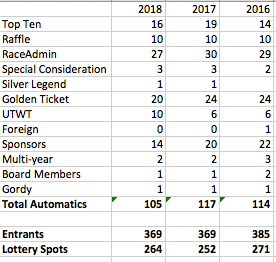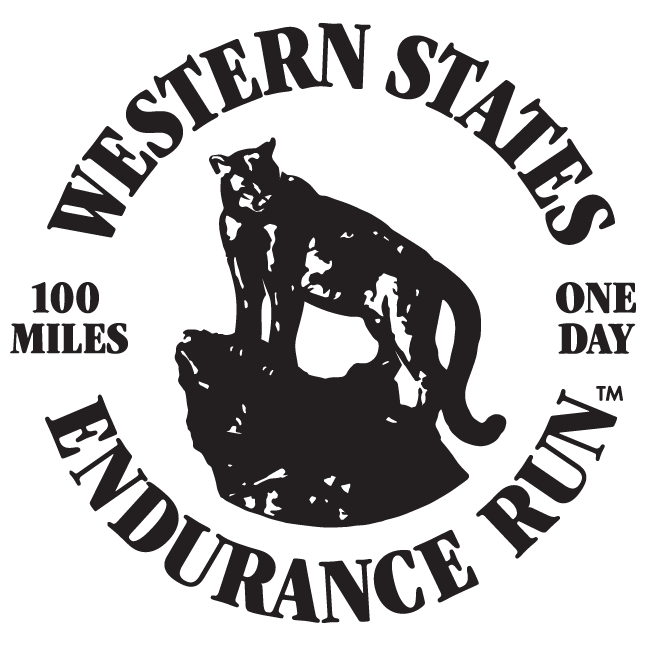For a man who never lost his cool, whose thin, veined hands were always steady, whose voice was gentle and understatedly calm and informed by an uncommon amount of patience and decency and who lived his life as a race director by a simple code – “Never let your runners see you sweat” – there was always one sight that made him pause and think about what would lay ahead for the runners of the Western States 100-Mile Endurance Run.
“That headwall,” Greg Soderlund once told a friend a few years ago. Soderlund held a cup of his favored Starbucks in his hand, stretched his long legs and pointed them to the nearby mountains and the majestic stone headwall rising golden in the sun-drenched morning a couple of thousand feet above the floor of Squaw Valley. Soderlund flashed one of his trademark grins, which always seemed to border on being shy, as if he was always careful, caring of how far his conversation was to pull you in. “Even with all of the training and the preparation, running Western States can become something of an abstraction.

Greg Soderlund
“But when our runners drive to this spot for the first time, and they look up at that headwall, Western States becomes completely and surprisingly very real to them. You can see it in their faces, and read it in their eyes. For the first time since the lottery in December, they realize they’ve taken on a full challenge that, for many of them, is a challenge of a lifetime. And that’s what I try to always remember as the race director of our race. Western States has to be special. It has to be something that our runners will talk about their entire lives – a day, a night, and maybe a next day, that when they talk about it years from now, it has changed their lives forever.”
True to his word, Soderlund, who served as Western States’ race director for 13 years, from 2000-2012, with an additional year as a consultant, made each Western States he directed memorable for thousands of runners and thousands more of volunteers and race personnel.
The Run that he wished would change lives did just that.
Lives that were altered included his own.
“It’s changed my life,” Soderlund said of Western States in a 2013 interview, not long after he announced his retirement due to health considerations. “It’s been my focus for 13 ½ years.”
Soderlund, who had battled cancer for more than three years and had remained active until only the past few weeks, passed away at around 8 p.m., on Monday, April 11, with his wife, Mary, at his side at the couple’s home in Sacramento, Calif.
Soderlund was 68 years old.
John Medinger, president of the Western States 100-Mile Endurance Run Board of Trustees, called Soderlund a “giant” in the sport.
“He was our race director for 13 years – the most unflappable RD ever,” Medinger said. “Nothing ever seemed to bother him. He was one of the kindest people I’ve ever had the pleasure to know. He did everything the right way – a true giant in our sport.”
Added Mo Livermore, one of the Run’s founders and the longest-serving member of the Western States Board: “It was that twinkle in his eye, and that wry grin … It made you smile, just to be around Greg. With irrepressible optimism and boundless enthusiasm for all things Western States, Greg energetically, masterfully, and carefully nurtured the growth and development of the organization at a challenging time in the race’s history, while honoring and preserving its founding principles and core values.”
As Livermore noted, it was Soderlund’s remarkable abilities of organization, tempered by the warmth of his personality, which drew others to him, galvanized the volunteer base of the Run, and set Western States on a course of unprecedented and historic growth and world-wide notoriety, firmly cementing its place on the ultra landscape as the most competitive 100-mile trail run in the world.
Under Soderlund’s direction, Western States saw its annual lottery swell to nearly 2,000 applicants from only a few hundred before he assumed his duties. Working closely with presenting sponsor Montrail, Soderlund helped Montrail develop a series of Western States qualifying races, called the Montrail Ultra Cup, which fostered greater competitive depth of the elite men’s and women’s fields, making Western States “the” first choice of the sport’s most talented trail runners. In addition, Soderlund’s tenure as race director was marked by trail maintenance efforts, volunteer numbers, sponsorships and medical research projects that all reached record levels.
Mark Falcone, a longtime Board member and also the Run’s longtime trail boss, said a Soderlund strength was the great breadth of abilities he possessed. Soderlund, Falcone said, was very involved not only in the management of the Run, but in establishing the foundation of trail work volunteers that continues to power the event today.
“The Western States Trail itself was Greg’s love,” Falcone said. “I remember in 2004 when he started the push to get Duncan Canyon open (following a devastating 2001 fire). He pulled in so many great folks and started the true collaboration of trail stewardship.
“The best part of all of this is Greg fostered this joint trail vision with the goal of preserving the forest and the event’s true route. He deserves so much credit for making this happen.”
Falcone then chuckled, recalling further when fellow Board and trail team member Donn Zea acquired the talents of an explosives expert that helped rid the trail of dangerous remnants of burned-out trees. The rather shaggy-looking explosives expert, to put it mildly, did not exactly inspire initial confidence in Soderlund, who had served in the military during Vietnam and was always impeccably dressed, in freshly pressed clothing and with a clean-shaven face.
And yet, Falcone said, Soderlund quickly found common ground with the explosives crew.
“The best part of the Duncan adventure was Donn’s Yosemite Sam Acme Explosives Crew,” Falcone said. “The look on Greg’s face when we blew up trees with, yes, dynamite, was pure boyish. Greg’s smile … a memory seared into my brain. The Western States Trail will always have his spirit.”
“I can say quite literally Greg had a wonderful impact on my life,” added Zea, who recalled it was through his work with The Forest Foundation, one of the Run’s eventual partners in an agreement that was forged with Soderlund, that brought Zea more actively into involvement with the Run. “I’ll never forget the look on his face at the 2006 lottery when, on my last of 10 draws from the Gatorade bucket, I handed him the ticket with my name on it and he gave me that Soderlund grin.
“I will miss him.”
Board member Tia Bodington first met Soderlund during the Western States Memorial Day Weekend Training Camp in 2001.
“I was camping at the group camp near Foresthill, and this guy shows up and starts to put up a tarp to protect some race gear,” said Bodington, who is also race director of one of the country’s most successful 100K’s, Miwok, in the Marin Headlands. “He was struggling to do it by himself so I wandered over to help and discovered that he was none other than the Western States RD – Greg Soderlund. We corresponded about race management periodically ever since then and I learned a lot about race directing from Greg, but that first day in 2001 is what made a huge impression on me – when all is said and done, it is the race director’s job to make sure every detail is taken care of.”
Ironically, the Run that Soderlund would help elevate initially received a pleasant “no” from him when he was asked if he would like to be a candidate to succeed the retiring Norm Klein as race director.
It was 1999, and Soderlund was already an eminently successful RD of four major northern California ultras, plus the Four Bridges half-marathon in Folsom, Calif.
“I looked at it and said, ‘No,’” Soderlund recalled in 2013. “To be fair to the other races, I knew I just didn’t have the time (for Western States).”
Eventually, though, Soderlund did become a candidate, and by early 2000 he was in charge of the world’s oldest and most prestigious 100-mile trail run.
“My initial impression of Greg was his incredible ability to take a 360-degree view of the Run and appropriately allocate his attention from the least complex to most complex details,” said Charles Savage, who was president of the Board when Soderlund was chosen. “There was no panic button on his dash. Greg was great with volunteers and to his credit he attracted a devoted team who would do anything to help out at the Run.”
Added Medinger, also on the Board then: “Greg was the obvious choice … the only choice, really.”
Soderlund very quickly took his role seriously.
“Somebody once said Western States is like getting married,” he said. “For six months, you wake up every morning and think about it. For six months, you go to bed each night and then you dream about it. Every day for six months, it’s the first thing and the last thing you think about. So, yes, I was feeling a lot of pressure that first year to make sure we got everything right.”
Denis Zilaff, a Western States Board member who has also been a key player in the development and success of the California International Marathon, was a friend to Soderlund for more than 25 years. He remembered Soderlund, a trained surgeon’s assistant, as someone who was exceedingly caring of all runners, of all ability levels.
“At every training run or race, Greg passed on words of wisdom,” Zilaff said. “He knew why runners get into trouble or fail to finish races and he would always caution runners about those issues. I’ve heard Greg give advice to those as experienced as (five-time Western States champion) Tim Twietmeyer as well as the person running his first ultra. This combination of organization, caring and mentoring made Greg special and set him apart from other race directors.”
For Twietmeyer, a five-time race champion, 25-time finisher and past president of the Board, Soderlund represented the perfect amalgam of scientific knowledge, insight into the human condition, and a strong spirit that even if it didn’t always find perfection, worked every day to achieve it.
Soderlund served in the Vietnam War as a surgeon’s assistant in a MASH unit and for many years was considered one of the top orthopedic surgical assistants in Sacramento. There were few crises – or seeming crises – that Soderlund hadn’t already calmly faced.
“Greg had this great balance between organization, with attention to detail, and an easy-going, calm personal style,” Twietmeyer said. “I’m sure his military background and hospital work taught him to be calm in a crisis. What glued it all together was that he was fun to work with. He had this great balance which is really remarkable.”
Twietmeyer said he always liked to tease Soderlund that as race director of the world’s best-known ultra, “Greg was earning about 45 cents an hour because he worked so endlessly at improving the event. It was all in fun, because I knew how Greg was: He’d work every hour of the day to get the race just the way he envisioned it. He told me that he obviously wasn’t in it for the pay, that his real reward was seeing the outpouring of runner elation and the genuine ‘thank you’ he’d receive as he hung the medallion onto the neck of another finisher.
“He knew by experience how finishing the race changed people’s lives and wanted to see that first-hand by being there to greet them at the finish line.”
Gary Towle, Western States’ longtime treasurer who quickly became one of Soderlund’s closest friends following Soderlund’s appointment as RD in 2000, said Soderlund was never de-railed by setbacks. This included the painful process of regular home-administered dialysis treatments over the past few years as Soderlund battled cancer. His cancer had included removal of both kidneys.
Despite the constant checks of pathology and dialysis, there was always a sense of optimism, Towle said.
“Greg was always future-oriented,” Towle said of Soderlund, who maintained a vigorous walking schedule, along with daily sets of pushups.
Soderlund recovered enough of his fitness during his illness to walk the Davis Stampede Half-Marathon in 2014. And, there was even a time where he engaged in a running duel for a mile with a landscaper who was sitting on an excruciatingly slow moving lawn mower.
“I think I got the better of him that day,” Soderlund said, chuckling. Of his cancer, Soderlund said he honestly did not have time to fill his days with negative thoughts. “I don’t give myself time,” he said. “I see all the positives.”
He was also a devoted husband. His wife of nearly 30 years, Mary, was always a key contributor to the Run, and, Soderlund often said, the perfect partner.
“She’s been my cheerleader, my advisor on business decisions – she’s got a good business head on her shoulders,” Soderlund said. “I would constantly run things by her, even before I would call the board president. There’s a lot of Mary in this race, too, though people may not realize it.”
Towle recalled that one of Soderlund’s final “good days” occurred on April 2, during the American River 50-Mile, a run that starts in Folsom and winds up the American River drainage to the Auburn Overlook, which is only a stone’s throw away from Placer High School and the finish of the Western States 100.
“I picked Greg up at his house and we went to his favorite restaurant in Auburn,” Towle said. “He wolfed down a huge breakfast and we headed for the AR 50 finish line where he visited all his running community buddies and cheered on the finishers. After the women’s winner, Devon Yanko, finished, I asked Greg if he wanted to head home. Greg said, ‘Not until Tim finishes. He should be in about 7:50.’
“Tim finished in 7:49. Greg cheered him in, and was ready to go home to rest.”
Details of a memorial service, which will likely be held in a few months, will be made available via the Western States website.






